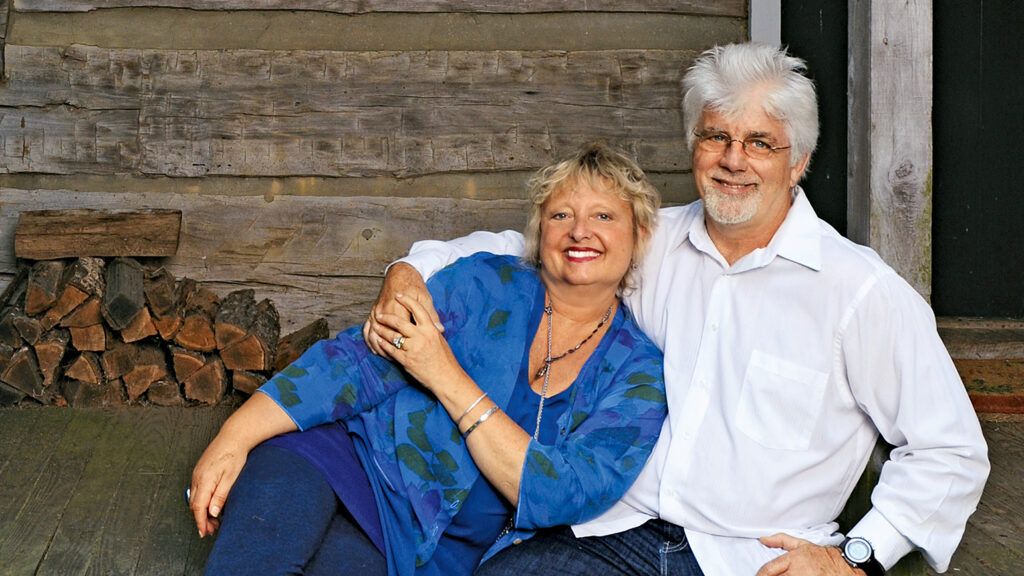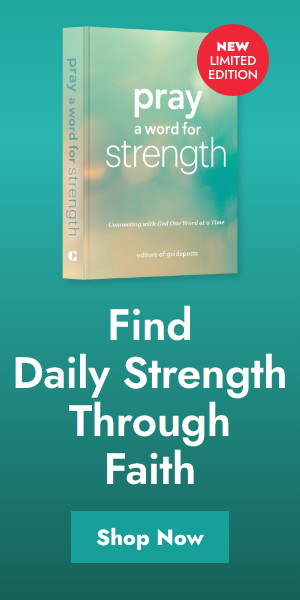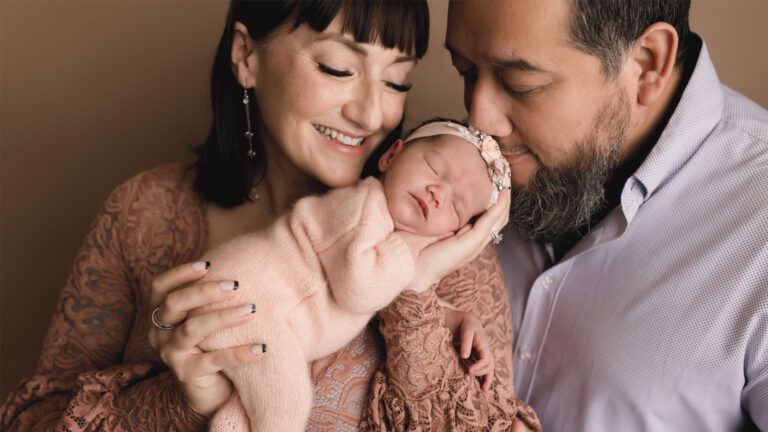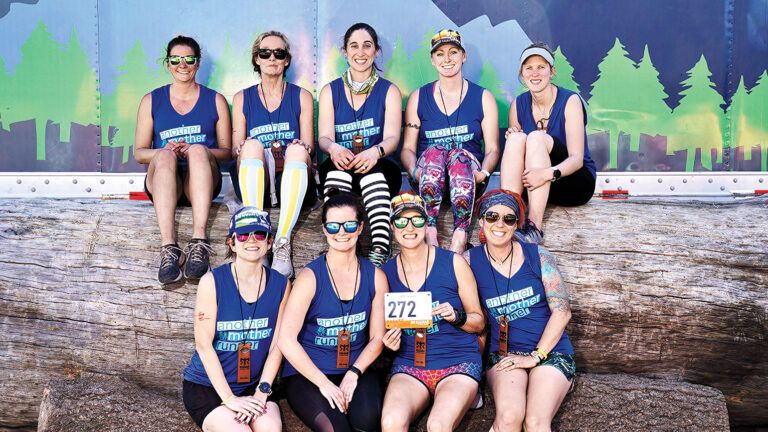Not long before the terrible visit to my doctor, my husband, Michael, and I bought a farm.
The farm was in Tennessee, 2,000 miles from Los Angeles and a world away from the music industry Michael and I had spent most of our lives in.
We’d lived the proverbial rock ’n’ roll lifestyle, the endless cycle of touring, recording, more touring. But we longed to settle down.
We had two kids, Dylan and Scarlett, and Michael, who practically lived on the road, was doing an album in Nashville, easy driving distance from our 100 acres of rolling hills, grazing cows and horses.
It was family time, time for hayrides and camping by the creeks and fishing in the pond. We began remodeling the farmhouse, filling it with antiques and, hopefully, memories.
Then one day in spring I planted some flowers around a playhouse we’d built for Scarlett. The guys working on the remodel had turned off the water, so I went to fetch some from the pond.
I lugged several buckets, getting the flowers good and drenched. The next day my bucket-carrying arm really hurt, especially underneath.
A couple months before, I’d found a small lump near that spot, but the doctor had said it was probably harmless.
This time the lump seemed bigger and the pain centered right on it. I tried to remind myself that I was only 41 and in great health. But the pain was sharp enough, and I was worried enough, to get it checked out.
Michael came with me to the appointment. I was glad he was there, but I figured we would be in and out pretty quickly, like most mammograms. The doctor, though, said I needed to stay for a sonogram.
“We saw something,” he said. That was all. Something.
We went to another room and I did the sonogram. I watched the doctor’s brow furrow with concern as he looked at the image. He turned to me. “Ms. McDonald,” he said, “you need to see a surgeon here at the hospital. Today. As soon as possible. We’ll call and get you an appointment. It’s very important.”
I walked out of that office in a daze. I know Michael had his arm around me, but I could barely feel it.
Weirdly, what I kept thinking about was that 1970s movie Love Story with Ryan O’Neal and Ali MacGraw. Was I going to be like Ali MacGraw’s character, I wondered, diagnosed with a terminal illness?
Michael and I slowly made our way to the hospital cafeteria to wait for the appointment with the surgeon. I sat there for a minute, then suddenly put my head down and sobbed. Fear overwhelmed me.
I saw everything that I cared most about—Michael, our son and daughter, our new life just beginning. Was I about to lose it all? Why? And why now? Michael and I had finally put everything together. I wasn’t ready to die!
The surgeon put my X rays against a backlit screen. “I’m going to be direct with you, Ms. McDonald,” he said. “When I see pictures like this, ninety-nine percent of the time it’s cancer. I think we need to schedule surgery, and we need to do it soon. As in tomorrow.”
His words came at me like blows. I sat immobile, unable to think. Somehow I went through the mechanics of scheduling the surgery. Then I collapsed against Michael and he helped me to our car.
That evening at home I was in a terrible state. I couldn’t look anywhere without seeing something I was about to lose. Cancer! Where had that come from? What had I done?
Michael and I had been trying to make good choices. And life was good. Years before, I’d put my own music career on hold to raise our kids and create a stable family. Michael was a committed father and husband.
Now we were reaping the fruits of those choices. Dylan and Scarlett were happy and healthy here at the farm. Michael was fully involved in our lives and as happy as I’d ever seen him.
The minute we got home from the hospital he called the studio to let them know he’d have to suspend recording. We had a rich circle of friends, who all called us that evening—I have no idea how they found out. Michael, probably. They were so comforting, so supportive.
But everyone I talked to felt like another potential loss, another reminder of cancer’s malicious timing.
The next morning doctors removed a tumor from my breast and 14 lymph nodes from my arm—they feared the cancer might have spread. Three days later I was back on the farm, recovering, when the phone rang. Michael was out on a tractor. It was the doctor.
“The news isn’t good,” he said. “Eleven of the fourteen nodes are cancerous. At this point we don’t know how far it has spread. You need to come in tomorrow for a full-body scan.”
I hung up and stared ahead. The news seemed impossibly bleak. I didn’t just have breast cancer. I had cancer—maybe everywhere. I looked down at myself. How much cancer was in there? I wondered. How much of me had it already eaten away?
I desperately wanted Michael to come in, to take me in his arms and tell me that everything was going to be all right. But the fear kept saying, It won’t be all right.
In the morning we again made the drive I’d gotten to know so well, past the green hills and picturesque farms outside Nashville. The rows of crops flashed by, cows grazing, horses with their sleek necks bent to the earth.
The early light was so pretty, making everything seem somehow deeper, more real. I kept my eyes fixed out the window, just taking it all in.
Suddenly I heard a voice. Not Michael’s, not any voice I recognized. You’re going to be okay. Just those five words, sounding simply and clearly inside me. Then silence.
The message was totally counterintuitive. I mean, I was on my way to find out whether my entire body was riddled with cancer! But somehow that didn’t matter. Comfort immediately flowed through me.
My fears, which had once seemed so overpowering, shrank until I could get my hands around them and shove them down. They didn’t go away. I just got stronger. I’d spent the past days feeling like a helpless victim. All at once I became a fighter.
I went through the scan and was stunned and relieved to hear the doctor say they had found no more cancer. Breast and lymph nodes—that was it. Still a lot, requiring extensive treatment. But suddenly I had a chance. I had hope.
And as the days, then weeks, then years of recovery unfolded, I began to see just how true those five words I’d heard on the highway really were. They weren’t just telling me I was going to be okay. They were reminding me I was already okay.
I’d cried out to God, Why now? Those words were the answer: Because now is when you can handle this. All those things I’d feared losing to cancer—the kids, a solid marriage to Michael, our new settled life, our beautiful home—they were precisely what gave me the strength I needed to beat cancer. Without them to rely on I might have died.
It’s been 14 years since that terrifying day when the doctor looked up from my mammogram results and told me he’d found something. I sure wish I could say it’s been 14 years of trouble-free recovery and recaptured health. It hasn’t.
I underwent a form of chemotherapy so powerful it kills a small percentage of people treated with it. My body changed profoundly. I went through early menopause, had both hips replaced and struggled with depression.
And yet I’ve never really doubted the truth of those five words I heard. That’s because every time I’ve confronted some new challenge I felt sure would break me, I’ve found God supplying—sometimes just reminding me about—resources I never knew I had.
Nowhere is that truer than in my marriage to Michael. We thought we were close when we moved to Nashville. Now, after endless rounds of chemo—Michael accompanied me to every session—and my draining emotional ups and downs, we truly know what it means to be partners for better and for worse.
A couple years ago, with the kids in their late teens, I returned to the studio and recorded an album. The album’s called The Journey to Miracle River, and there’s a lyric in the title track that I think sums up what I’ve learned from my battle with cancer.
It goes like this: “When you finally reach your destination, fall down on your knees and thank your maker for all the crosses and the blessings on the journey to Miracle River.”
Crosses and blessings. Yes, there are crosses in this life, always. But for every cross there’s a blessing. And for every hopeless moment there’s a God who provides.
You’re going to be okay, he says.
Read about how Michael McDonald let go of the past.
Find more info on amyhollandmcdonald.com.
For more inspiring stories, subscribe to Guideposts magazine.





